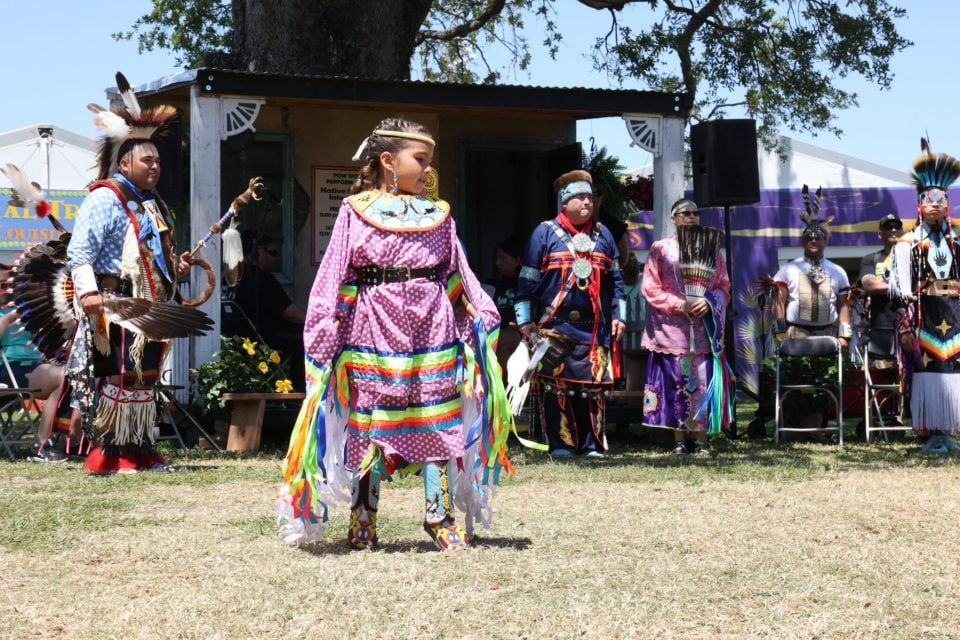First Amendment to the Constitution of the United States
October 11, 2018
TOUR BEYOND the GARDEN GATE
October 11, 2018Although oil was struck in Leeville in 1929. the year I was born, good oil field jobs were scarce for Cajuns Better jobs were given to “Texians” who came in droves. For those with no experience in the oil field, the few jobs available were roustabouts, basically helpers doing the hard and dirty jobs.
The Cajuns believed they were justified forming vigilante gangs to fight the outsiders, not an honorable part of our past. Rebstock’s dance hall was a prime battle zone on Saturday night The Cajuns even had a song. “Texians, Come take our living, come take cur women,, come take our jobs, Texians. come live among us, just like a fungus, stuck to a tree.”
By World War II “Texians” had married local girls and the natives had learned the oilfield business, which meant better jobs. Eventually many Cajuns retired with healthy portfolios As locals became uncles, cousins and neighbors to the outsiders from Texas, they realized, “Hey! These guys are O.K.” Our families mingled and our cultures blended. We got 10 gallon hats, big belt buck-lee and Bob Wills and the Texas Playboys They got “Boo-Ray”, a funny language and Gumbo Fair trade.
Radio
I was eight-year-a-old when dad unloaded what appeared to be a large piece of furniture. It was 1937. “I bought a second hand radio,” he said.
Jubilation reigned in our household! The moment we had dreamed about There was only one problem— Lockport Power and Light had not gotten to our house with electricity yet, SO the radio sat silently in the corner for a few months.
My uncle had a battery operated one to which we would B amp times listen. During big events, especially prizefights, he would put the radio in his window and the men in the neighborhood would listen from his lawn. I remember the second Joe Louie/Max Shoaling fight and the Joe Lewis/Billy Conn fight. My uncle also had a phone that we all used.
Electricity arrived and the radio played sun up to sundown and beyond. My favorites were Jack Armstrong. The Lone Ranger and Gang Busters. Betty, my sister, lilted Lets Pretend. (She was my only sibling and 6 years younger) Soap opera time was Mom’s favorite. Helen Trent Our Gal, Sunday and Ma Perkins were daily rituals.
Before America entered the war; we heard Edward R. Mur-row’s nightly program, “This is London,” It was broadcast from British rooftops with Nazi bombs exploding in the background. It was chilling America sympathized but stayed neutral until December 7, 1941.
On Sunday nights we sat semi-circle and watched (yes, watched) the radio as Rudy Valise, Eddie Cantor and Ring Crosby entertained. Our own imaginations played a part in radios popularity. We opened a • “pop rouge” or an “MJJ.C. Orange’ and the stage was set for a joyful night.
The Pop Rouge Story
This “pop rouge” story centers on the brand name M.B.C. a popular soft drink bottling company that was located in Lockport and owned by the Caillouet family. It was the most popular brand of soft drink in south Lafourche, with the possible exception of Coke, known then only by its formal name Coca Cola.
The “pop rouge” was actually a strawberry soda, but no one called it that They made other flavors and were also distributors of national name brands, but “pop rouge” and M.B.C. orange were by far the most popular.
The orange had small bits of orange pulp in it. This was my favorite and I’d give $100 (they only cost a nickel then) to have one right now, and although I’m a type two diabetic I’d risk a few sips.
Mr. Caillouet often made the trip with his route men and one day I heard him say at my grandfather at Paul Callsis’ grocery store, “people often think M.B.C. means “Made by Cailliout” but actually it’s the initials of my mother’s maiden name.”
The red dye used to make “pop rouge” was eventually taken off the market by the F.D.A. and it then became “pop clair” (clear). Not as much fun. Bye Now!



